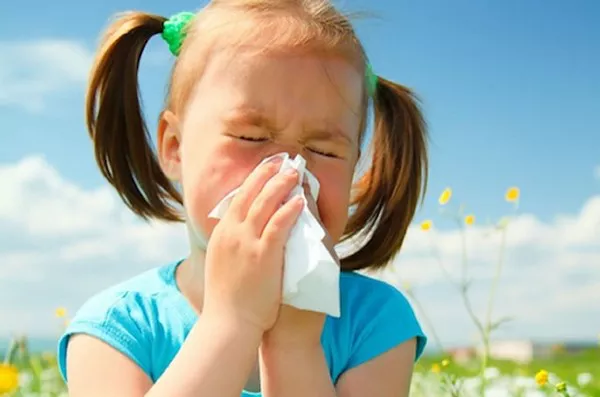Dust is an unavoidable presence in our environment, but for some individuals, it can trigger allergic reactions. Dust allergies are prevalent and can cause significant discomfort and health issues. Understanding the symptoms of a dust allergy is crucial for early identification and appropriate management. In this article, we will explore the signs and symptoms of dust allergies, their underlying causes, risk factors, and potential treatment options.
What is a Dust Allergy?
A dust allergy is an immune system response to tiny particles found in dust, such as dust mites, pollen, mold spores, pet dander, and other pollutants. When an allergic individual inhales or comes into contact with these particles, their immune system overreacts, leading to a range of allergic symptoms.
Common Symptoms of Dust Allergies
The symptoms of a dust allergy can vary in severity from mild to severe. Some common signs include:
1. Sneezing and Runny Nose
One of the most prevalent symptoms of a dust allergy is frequent sneezing and a runny or stuffy nose. Dust particles can irritate the nasal passages, leading to these uncomfortable symptoms.
2. Watery and Itchy Eyes
Allergic reactions to dust can also manifest in the eyes, causing them to become red, watery, and itchy. This condition, known as allergic conjunctivitis, can significantly impact daily activities.
3. Coughing and Wheezing
Dust allergies can trigger coughing and wheezing, particularly in individuals with pre-existing respiratory conditions such as asthma. The allergens can irritate the airways and exacerbate respiratory symptoms.
4. Skin Rash and Itching
In some cases, direct contact with dust or its particles can lead to skin reactions, such as hives or eczema. Itching and redness of the skin are common in these situations.
5. Nasal Congestion
Dust particles can cause swelling of the nasal passages, leading to nasal congestion and difficulty breathing through the nose.
6. Postnasal Drip
Excess mucus production due to a dust allergy can result in postnasal drip, where mucus flows down the throat, causing irritation and coughing.
7. Sinus Pressure and Headache
Allergic reactions to dust can lead to inflammation in the sinuses, resulting in pressure and headache.
8. Fatigue
Continuous exposure to dust allergens can cause fatigue and overall feelings of unwellness.
Causes of Dust Allergies
Dust contains various allergens that can trigger an immune response. The most common allergens found in dust are:
1. Dust Mites
Dust mites are microscopic creatures that thrive in warm and humid environments. They feed on dead skin cells and can be found in mattresses, bedding, upholstered furniture, and carpets.
2. Pollen
Pollen from trees, grasses, and weeds can find its way indoors and become trapped in dust, leading to allergic reactions.
3. Mold Spores
Mold thrives in damp and poorly ventilated areas. When mold releases spores into the air, they can be inhaled, causing allergic symptoms.
4. Pet Dander
Proteins found in pet saliva, urine, and skin flakes can become airborne and trigger allergic reactions in susceptible individuals.
5. Cockroach Particles
Cockroach droppings and body parts contain allergens that can be present in dust and cause allergies.
Risk Factors
Certain factors can increase an individual’s risk of developing a dust allergy:
1. Family History
A family history of allergies, such as asthma or hay fever, can predispose individuals to dust allergies.
2. Childhood Exposure
Exposure to dust allergens during early childhood can increase the likelihood of developing allergies later in life.
3. Occupational Exposure
Certain occupations that involve regular exposure to dust, such as farming or woodworking, can elevate the risk of developing a dust allergy.
4. Environmental Factors
Living in a humid climate or in a house with poor ventilation can promote the growth of dust mites and mold, increasing the risk of allergies.
Diagnosis and Treatment
1. Diagnosis
If an individual experiences persistent symptoms suggestive of a dust allergy, a visit to an allergist or immunologist is recommended. The healthcare professional will conduct a thorough medical history and may perform allergy tests, such as skin prick tests or blood tests, to identify specific allergens causing the reaction.
2. Treatment
Environmental Control
The most effective approach to managing dust allergies is to minimize exposure to allergens. This includes regular cleaning, using allergen-proof mattress and pillow covers, washing bedding in hot water, and maintaining low indoor humidity.
Medications
Antihistamines, decongestants, nasal corticosteroids, and other allergy medications can help alleviate symptoms and manage allergic reactions.
Immunotherapy
For individuals with severe or persistent allergies, allergen immunotherapy (allergy shots) may be recommended. This treatment involves gradually exposing the individual to small amounts of the allergen to build tolerance over time.
Emergency Plan
Individuals with a history of severe allergic reactions should have an emergency plan in place, including the use of epinephrine auto-injectors (EpiPen) for anaphylaxis.
Conclusion
Dust allergies are a common and bothersome health issue for many people. Identifying the symptoms of a dust allergy is crucial for timely management and to improve the quality of life for those affected. By understanding the causes, risk factors, and treatment options, individuals can take proactive steps to reduce allergen exposure and seek appropriate medical care. If you suspect you or a loved one has a dust allergy, consult a healthcare professional for proper diagnosis and personalized management strategies.


